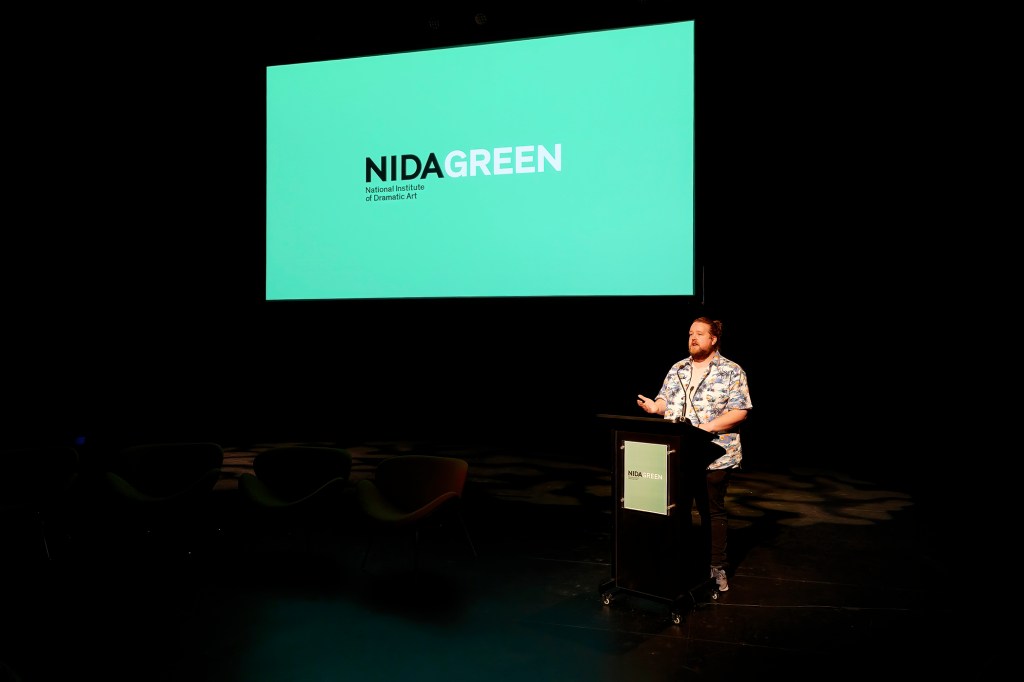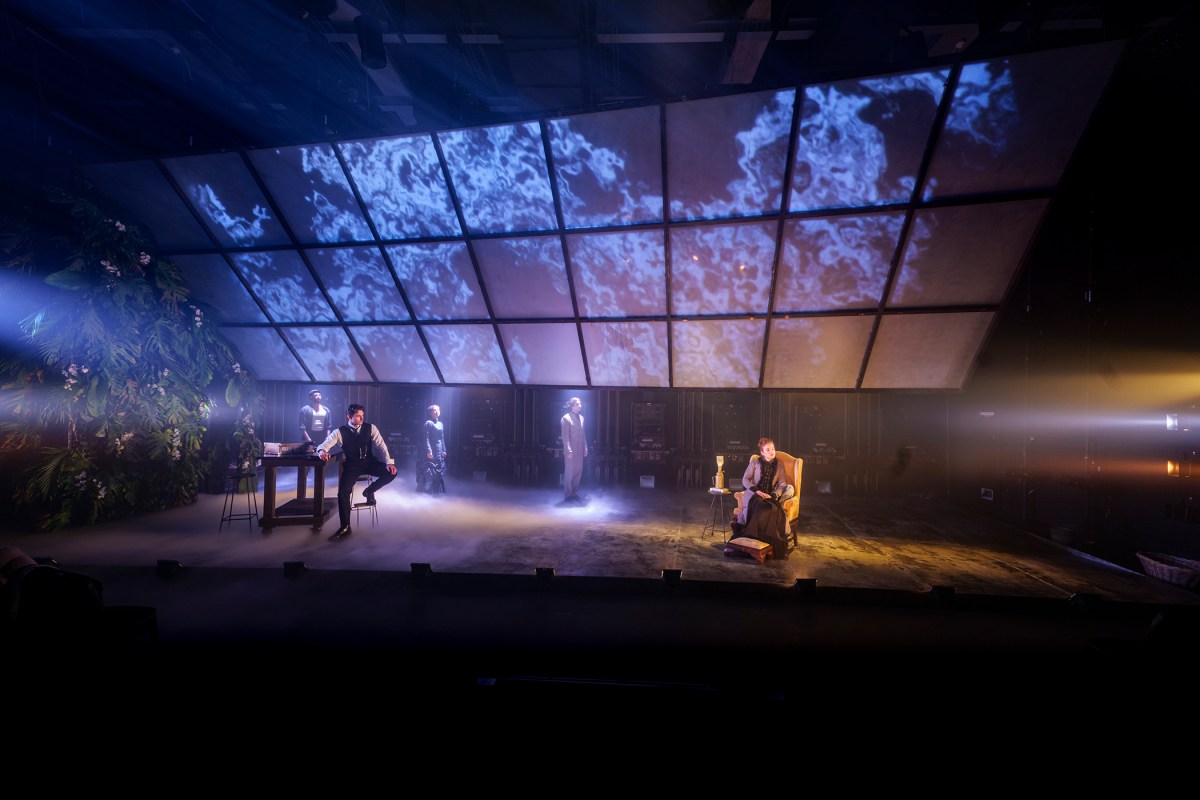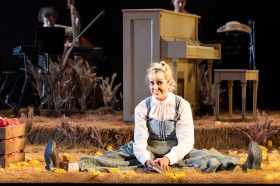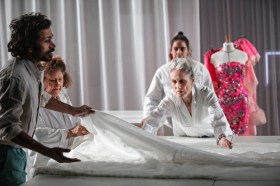The evidence of human-induced climate change is confronting us on a daily basis. But that doesn’t mean we’re helpless, or that we should be paralysed by fear.
‘Yes, climate change is impacting the world, but we can change it too – we can make it better,’ said third year National Institute of Dramatic Arts (NIDA) student Scott Cleggett.
NIDA recently announced its NIDA Green initiative – a plan to become a leading sustainability educator in the arts and entertainment industries – and Cleggett, who is studying his Technical Theatre and Stage Management Bachelor of Fine Arts, is a committed member of the NIDA Green team.
‘NIDA students are the next generation of artists and the next cultural leaders, and NIDA Green is looking at how we can make a change that will benefit the world – and also benefit the sustainability of our industry as well,’ he told ArtsHub.
As well as committing to become a fully regenerative and climate positive organisation by 2030, NIDA is educating its students about the environmental impact of their arts practice. Building on the evidence-based work of the Institute for Sustainable Futures at the University of Technology Sydney (UTS), NIDA Green aims to ensure that NIDA is a leader in sustainability education in Australia’s dramatic arts sector – an ambition that Cleggett and his fellow students have enthusiastically embraced.
‘Because we’re young people, we’re still learning. So we are going to go into these [creative] industries and be able to make those changes with fresh ideas and fresh minds.
‘Young people can really make a difference when sometimes governments and organisations aren’t doing enough, so it’s really important for us to be a part of that. And it’s great that NIDA is on the front foot about it as well, because there’s a lot of businesses and governments that have paid lip service to sustainability and the environment,’ he continued.
‘But here at NIDA there’s been a lot of consultation with the students about how we can go forward in a way that supports our learning, but also supports the environment as well,’ Cleggett said.
Creating real change
Structured around five key pillars – community, production, curriculum, building and operations, and leadership – NIDA Green aims to equip current and future student cohorts with the skills they need to make real change in the performing arts sector.
As NIDA CEO Liz Hughes explained: ‘As part of NIDA Green, we will create an environmentally conscious community that harnesses the input of people who want to make a difference. Our plan sees sustainability becoming a core part of NIDA’s education and we will change the way we create and produce creative works at NIDA to lead and cultivate green industry practice.’

Embedding environmental awareness and sustainability practices into the curriculum alongside the other skills NIDA students are taught ensures Cleggett and his peers will be ready to make a positive impact from the moment they graduate.
‘Being able to teach us while we’re learning, while we’re undertaking our education, really equips us with the tools that we can take out into the industry to make sustainable practice a part of our lives,’ he told ArtsHub.
‘But it’s also recognising the fact that it’s not just something to do for the sake of it, it’s a way of life. It should be a part of our standard practice to think about sustainability, and to lead the way for other people and other practitioners as well,’ Cleggett said.
Embedding sustainable practice
The initiatives associated with NIDA Green will ensure that students are thinking about sustainable practice from the initial stages of every new production, Cleggett continued.
‘From the very conception of productions at NIDA we can start thinking about the design process and how we can make things better for the environment – for example, where the materials might end up at the end of it, or the costumes – can they be recycled or repurposed?
‘By working through the entire production process, all the way through to closing night, we can have a set that’s really easy to disassemble for example and has a future life at a different theatre company. We can even reuse the set’s materials for something else,’ he explained.
Given that NIDA Green is informed by the evidence-based research of the Institute for Sustainable Futures and supported by senior management, as well as alumni such as Cate Blanchett, Yael Stone and Damon Gameau, Cleggett is optimistic about the impact he and his fellow students can have on the world – environmentally as well as creatively.
‘One thing that artists really know about is ensuring that we have a strong and diverse culture – in terms of our storytelling, how we transfer our knowledge to the next generation, and how we inform people of what our values are. And our values are around making a better world for everybody,’ he concluded.






